For web data projects and competitive eCommerce, a slow proxy leads to failure. It’s that simple. When you need to gather accurate data or secure a high-demand product, the speed and reliability of your connection are what matter.
This guide is based on objective performance data, not marketing hype. We use real benchmarks to rank the top 7 proxy providers, helping you choose the right service for your specific task.
Top recommendations at a glance
- Best overall performer: Oxylabs – the go-to provider for large companies that need maximum performance for large-scale projects. It delivers a powerful mix of speed (0.41s response time), a high success rate (99.82%), and a massive, ethically-sourced IP pool.
- Fastest for competitive tasks: HypeProxies – a specialized provider for high-stakes eCommerce. Its record-setting 0.06s infrastructure response and 100% success rate on difficult websites make it the clear choice for tasks where speed is the main priority.
- Best all-around value: Decodo – offers the best all-around package on this list, successfully combining speed (0.63s), a user-friendly platform, and reasonable pricing. It’s a strong choice for both new and experienced users.
Understanding proxy types
A proxy serves as an intermediary for your internet connection, using a different IP address to protect your privacy and enable access. The right type of proxy depends on what you’re trying to do:
- Residential. IPs from real home internet connections. They are very effective at avoiding blocks but are generally slower than other types.
- Datacenter. IPs from commercial servers. These are fast and inexpensive but can be more easily detected by sophisticated websites.
- ISP (Static Residential). A hybrid solution that offers the speed of a datacenter proxy with the legitimacy of a residential IP address.
- Mobile. IPs from mobile phone networks. These have the highest reputation and are essential for accessing the most heavily protected online targets.
Key performance metrics explained
To properly evaluate a proxy provider, focus on these three metrics:
- Success rate (%). The single most important factor. It measures the percentage of your requests that successfully connect. If the success rate is low, the speed is irrelevant. A reliable provider should consistently be above 99%.
- Response time (latency). The time it takes for the proxy server to respond to a request, measured in seconds (s). A lower number indicates a faster, more reactive connection, which is vital for time-sensitive operations.
- Throughput (download speed). After connecting, this measures how quickly you can transfer data. High throughput (measured in MB/s) is necessary when working with large files like HD images or extensive datasets.
How we ranked these providers – this analysis relies on objective benchmark data, primarily from the reports published by Proxyway.
The top 7 proxy providers, ranked
1. Oxylabs
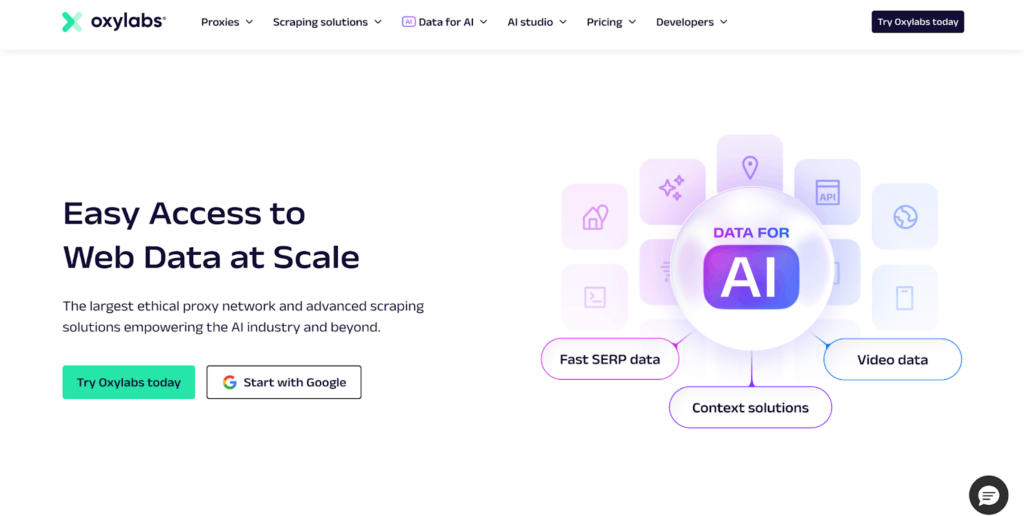
Oxylabs is the go-to provider for large companies running serious, large-scale data operations. Its reputation is built on delivering high performance and stability for demanding, mission-critical projects, backed by one of the largest IP pools available.
Performance snapshot
- Average response time (Residential) – 0.41s (A top-tier speed that sets a high bar for residential networks).
- Infrastructure success rate (Residential) – 99.82% (Indicates a very stable and dependable network).
- IP pool – over 175 million IPs across 195 countries.
Best for – enterprise-level data scraping and any large-scale project where reliability cannot be compromised.
2. HypeProxies
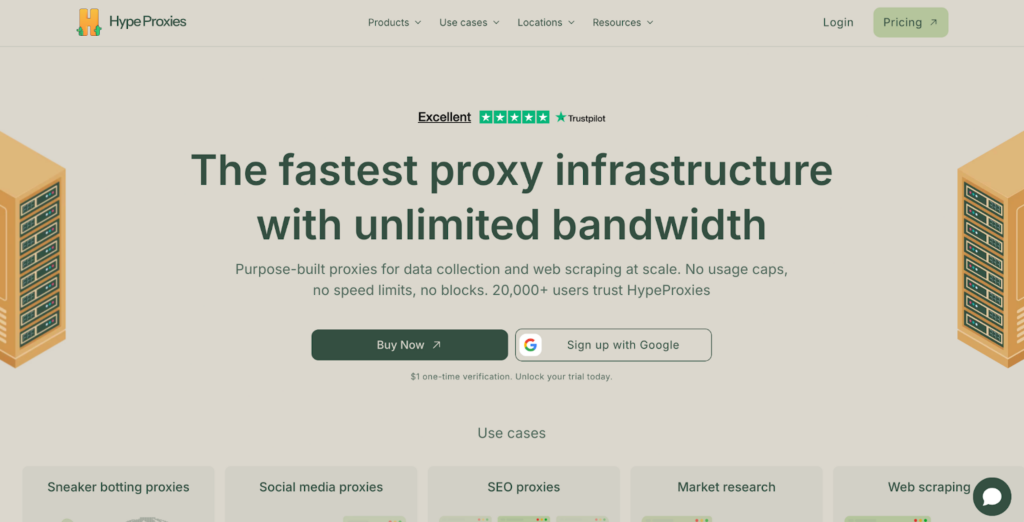
HypeProxies focuses specifically on high-speed, competitive tasks where timing is everything. Its ISP proxies are engineered for the intense demands of online retail for limited-edition products, ticketing, and similar high-stakes events.
Performance snapshot
- Average response time (Infrastructure) – 0.06s (the fastest result ever seen in this specific benchmark).
- Success rate on popular targets – a perfect 100% against challenging sites like Amazon and Google.
- Response time on popular targets – a solid 2.10s average against real-world targets.
- Download speed – an average of 52.39 MB/s, sufficient for any data transfer task.
Best for – competitive eCommerce where speed provides a direct advantage over other users.
3. Decodo (formerly Smartproxy)
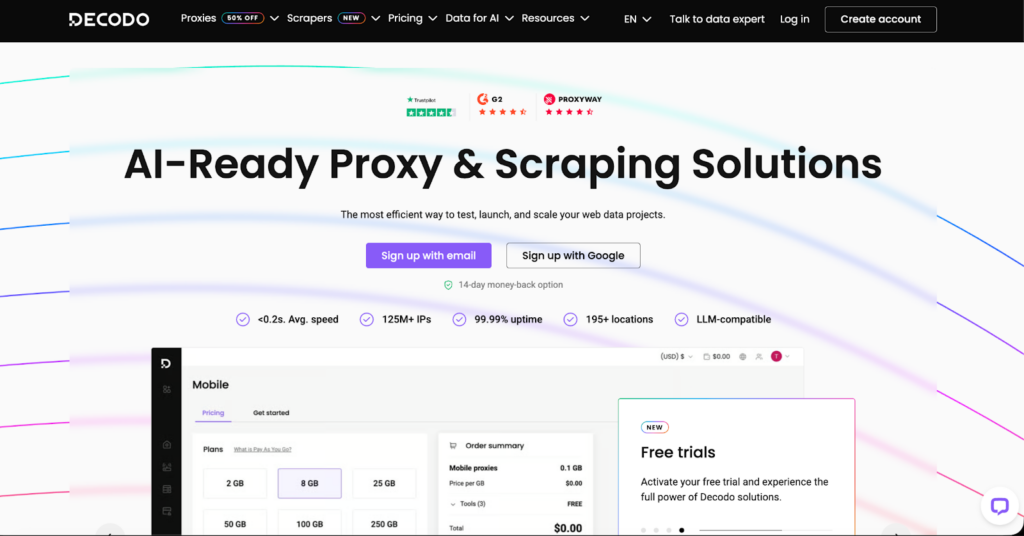
Decodo offers the best all-around package on this list, making it a strong choice for a wide variety of users. Formerly Smartproxy, the service provides an excellent combination of high performance, an intuitive dashboard, and cost-effective plans.
Performance snapshot
- Average response time (Residential) – 0.63s (A very fast time that competes directly with the market leaders).
- Infrastructure success rate (Residential) – 99.86% (Shows extremely reliable infrastructure).
- IP pool – a large network of over 115 million residential IPs.
Best for – most standard use cases, from web scraping to market research, for both individuals and businesses.
4. Bright Data
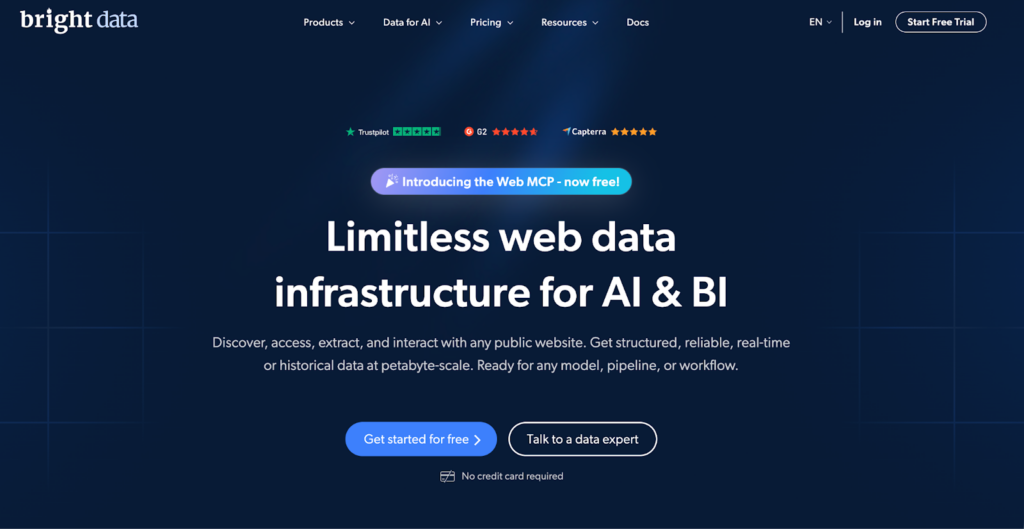
Bright Data operates as a full-featured data collection platform, giving expert users a high degree of control over their proxy infrastructure. Its main strength is the powerful set of tools that allow for deep customization of how IPs are rotated, filtered, and managed.
Performance snapshot
- IP pool size – approximately 700,000+ ISP proxies and over 150 million residential IPs.
- ISP proxy performance – a 99.14% success rate with a 1.00s response time for US-based ISP proxies.
- Key feature – advanced customization and IP management tools for complex projects.
Best for – technical teams who need granular control to build sophisticated, large-scale data collection systems.
5. Webshare
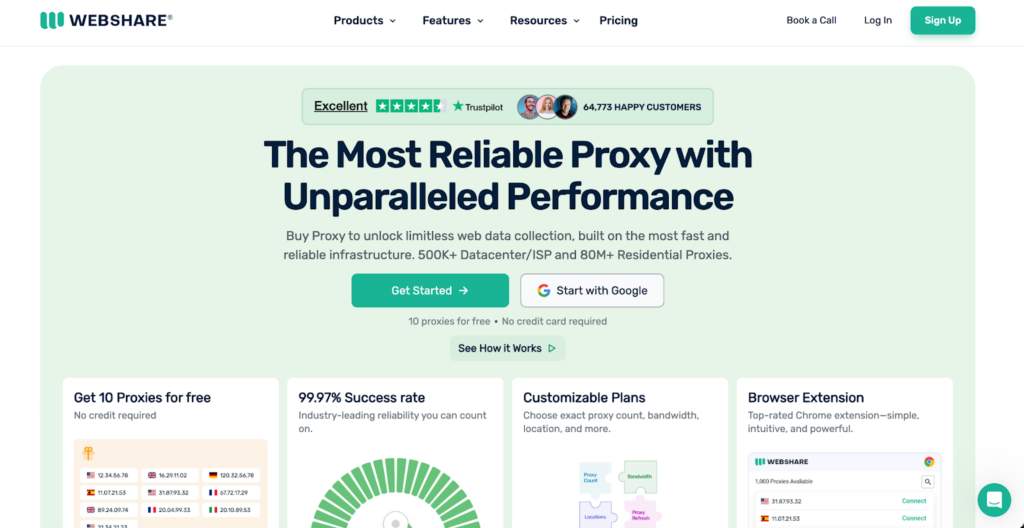
Webshare is known for its flexible and affordable pricing models. The platform allows you to build a custom plan based on your exact needs, and its free tier (offering 10 datacenter proxies) is a great way to test the service without commitment.
Performance snapshot
- Infrastructure success rate (Datacenter) – 98.61% with a 0.75s response time, indicating a solid foundation.
- Performance on popular targets – as expected with shared datacenter IPs, it struggled against protected sites like Google (9.02% success).
- IP pool – a network of over 500,000 datacenter and ISP proxies.
Best for – budget-conscious users and projects targeting simple websites that don’t have strong anti-bot measures.
6. NetNut
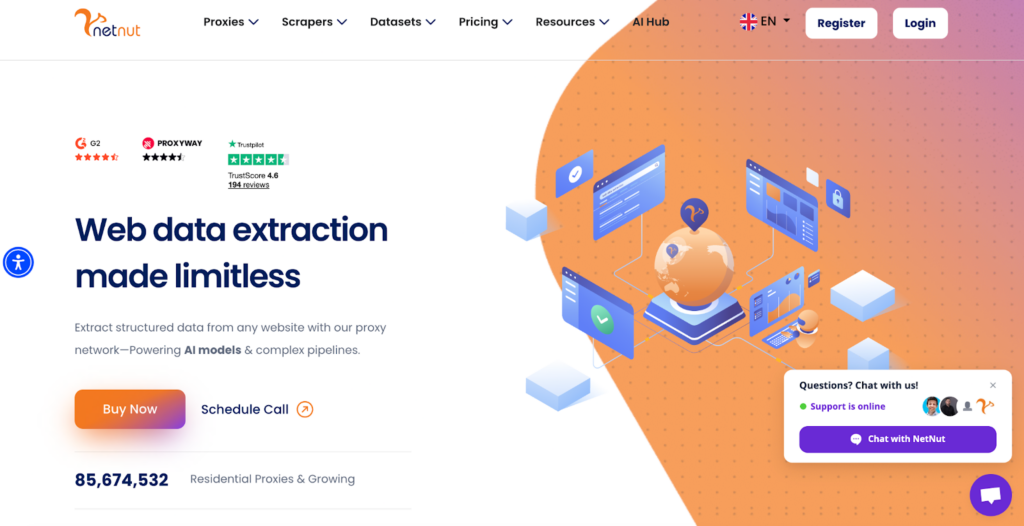
NetNut differentiates itself with a network architecture that connects directly to Internet Service Providers (ISPs), which can improve connection speed and stability over traditional P2P networks. This makes it a popular choice for businesses conducting market research.
Performance snapshot
- Infrastructure success rate (Residential) – 98.40% (a reliable and consistent network).
- Average response time (Residential) – 1.22s (a respectable time, though not as fast as the top-tier providers).
- IP pool – over 85 million residential IPs.
Best for – business intelligence and data aggregation tasks that require stable, long-session connections.
7. IPRoyal
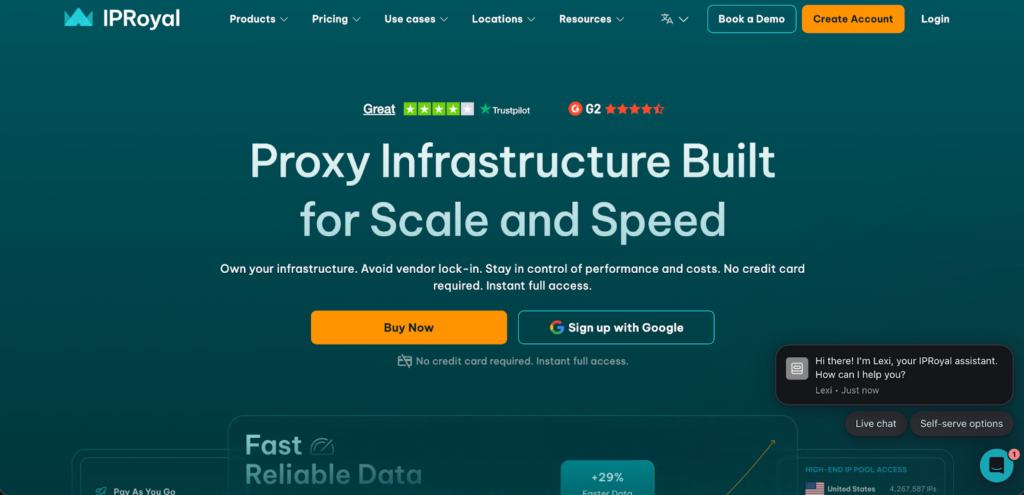
IPRoyal provides a wide range of proxy types at a very competitive price point. It’s a versatile and user-friendly service that delivers reliable performance for common applications like social media management and ad verification without a high cost.
Performance snapshot
- Infrastructure success rate (Residential) – 99.56% (shows a highly reliable network foundation).
- Average response time (Residential) – 1.06s (a solid speed for a provider in its price range).
- IP pool – over 32 million residential IPs and 4.5 million mobile IPs.
Best for – users who need flexibility and good value for a variety of everyday online tasks.
How to make your decision
Consider these 3 factors to select the right provider for your needs:
- Analyze your target. Are you targeting simple websites or heavily protected platforms? The latter will require the higher trust level of residential or ISP proxies.
- Evaluate the cost of failure. If a blocked request is a minor issue, a versatile provider like Decodo is sufficient. If it means a significant loss, the near-perfect success rate of a specialist like HypeProxies is the more logical choice.
- Consider your budget and scale. Individuals and small businesses will find the plans from Webshare or IPRoyal very cost-effective. Larger organizations will benefit from the scale and features of platforms like Oxylabs or Bright Data.
Conclusion
The “fastest” proxy is not just about the lowest response time; it’s about the provider that delivers the most successful outcome for a specific task. True performance is a combination of speed, reliability, and the right IP type for the job.
The data points to clear recommendations. For large-scale enterprise needs, the choice is Oxylabs. For winning in high-speed competitive environments, it’s HypeProxies. And for the majority of users who need a powerful and reliable all-around solution, the best option is Decodo. With this information, you can make an informed decision and choose the provider that aligns with your goals.


